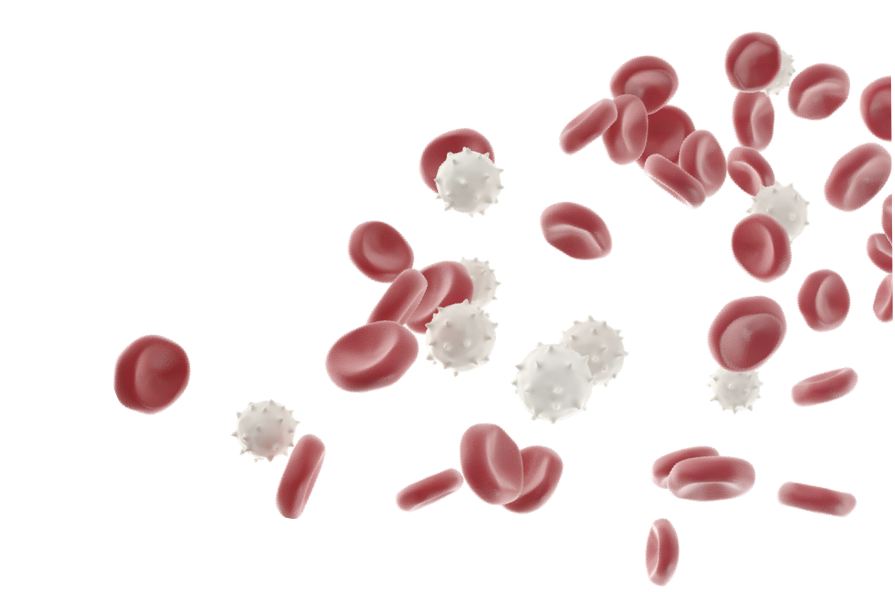The human body’s immune system allows us the ability to fight off infection and stay healthy. Autoimmune diseases, also known as autoimmune disorders, are a group of conditions where the immune cells attack the healthy cells by mistake. Autoimmune disorders can make the body more susceptible to other conditions and infections, particularly serious infections like COVID-19 and the flu.
WHO IS IMPACTED?
There are over 100 different autoimmune diseases that impact a wide variety of organs. According to the American Autoimmune Related Diseases Association Inc., as many as 1 in 5 Americans or roughly 50 million people are impacted by an autoimmune disease. Women are disproportionately affected, and it is estimated that approximately 75% of these cases are females. Some diseases have a higher incidence in certain ethnic groups. For example, 9 out of 10 people with lupus are women, and African-American, Hispanic, Asian and Native American women are 2-3 times more likely to have lupus than Caucasian women. Type 1 diabetes has a higher incidence among Caucasians than other ethnic groups.
WHAT ARE THE RISK FACTORS FOR AUTOIMMUNE DISEASE?
Many autoimmune diseases have a genetic basis and tend to run in families. However, when they occur within the same family, it’s not always the same disease. It is important to share any family history of autoimmune disease with your provider. Women are also at greater risk, particularly those
of childbearing age. According to Johns Hopkins University, being overweight and smoking are two additional risk factors.
WHAT CAUSES THE ONSET OF AUTOIMMUNE DISEASE?
There are different factors that can trigger the onset of an autoimmune disease. Several environmental factors such as certain chemical solvents, sunlight and viral or bacterial infections can be a catalyst. Once the disease process has begun, there may be periods of flare-ups and remissions, meaning that the disease symptoms worsen and lessen periodically over time.
WHAT ARE SOME EXAMPLES OF AUTOIMMUNE DISEASES?
While there are many different types, some of the better known ones are celiac disease, Crohn’s disease, Hashimoto’s disease, Type 1 diabetes, lupus, multiple sclerosis, psoriasis, psoriatic arthritis, Raynaud’s phenomenon, rheumatoid arthritis and ulcerative colitis. There are other conditions such as endometriosis and narcolepsy that are being studied as potential autoimmune disorders.
With such a wide variety of diseases, there is an equally wide variety of specialists that would follow someone with one of these conditions. Rheumatologists, dermatologists, gastroenterologists, cardiologists, nephrologists and endocrinologists are some of the specialists that might be involved in the care team.
WHAT ARE THE SYMPTOMS?
While the diseases vary greatly in their scope, some of the symptoms are common. Fatigue, trouble with concentration, achy muscles, joint pain, skin rash, low-grade fever, numbness or tingling in the hands or feet, hair loss, swelling, and redness can all be potential indicators that there is an underlying condition.
DIAGNOSIS AND TREATMENT
Unfortunately, diagnosing many autoimmune disorders can be difficult, and many patients see a variety of providers before a definitive diagnosis is made. Diagnosis can be based on results from blood work, imaging studies, physical exams, family history and other methods. Depending on the disease, there may be medication to help manage symptoms and avoid complications. For example, many gastrointestinal diseases have medications that have been proven successful in minimizing flare-ups. Those diagnosed with Type 1 diabetes will need insulin in the absence of sufficient pancreatic functioning.
Some people will also turn to alternative treatment methods such as chiropractic, acupuncture, hypnosis, cold therapy and herbal supplements.
If you have been experiencing symptoms without a diagnosis, talk to your provider about what testing options may be right for you.
BY LINDSEY JOHNSON, M.S.
Related articles:
Stay Updated on What is Reopening In Alachua County | Updated 5/18
Try This Workout to Shred your Arms and Abs

